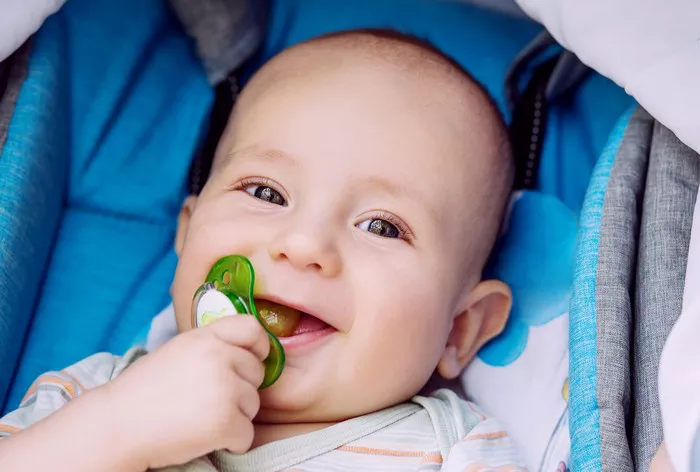Pacifiers, also known as soothers or binkies, have been a subject of debate in parenting circles for decades. While some parents swear by their effectiveness in soothing infants, others express concerns about potential drawbacks such as nipple confusion, dental issues, and dependency. Amidst this ongoing discussion, one question frequently arises: do hospitals provide pacifiers to newborns? In this article, we delve into the policies, practices, and implications surrounding the provision of pacifiers in hospital settings.
Policies on Pacifier Provision
The policies regarding the provision of pacifiers in hospitals vary widely across different healthcare facilities and regions. Some hospitals have strict guidelines against providing pacifiers to newborns, citing concerns about breastfeeding initiation and potential health risks. These hospitals often adhere to the recommendations of organizations such as the World Health Organization (WHO) and the American Academy of Pediatrics (AAP), which advise against introducing pacifiers in the early days of breastfeeding to avoid nipple confusion and promote successful nursing.
Conversely, other hospitals may have more lenient policies that allow for the provision of pacifiers under certain circumstances. For example, in cases where a newborn is experiencing significant distress or discomfort, healthcare providers may offer a pacifier as a means of providing comfort and calming the infant. Additionally, hospitals that prioritize maternal and infant bonding may permit the use of pacifiers once breastfeeding has been established and the baby is deemed healthy and thriving.
Practices in Hospital Settings
The actual practices surrounding the provision of pacifiers in hospital settings often reflect the policies and guidelines established by healthcare organizations and individual institutions. In hospitals where pacifiers are prohibited or discouraged, nurses and other healthcare providers are typically instructed not to offer pacifiers to newborns unless there are extenuating circumstances that warrant their use.
Conversely, in hospitals where pacifiers are permitted, healthcare providers may incorporate them into their care practices in various ways. For example, a nurse caring for a newborn in the neonatal intensive care unit (NICU) may offer a pacifier to a premature infant undergoing painful procedures to help alleviate discomfort and provide comfort. Similarly, a pediatrician conducting rounds on the postnatal ward may suggest the use of a pacifier to calm a fussy newborn while waiting for a feeding or to facilitate the transition from breastfeeding to sleep.
Implications of Pacifier Provision in Hospitals
The provision of pacifiers in hospital settings carries several implications for both newborns and their families. Understanding these implications can help healthcare providers make informed decisions about when and how to incorporate pacifiers into their care practices.
1. Breastfeeding Initiation and Success
One of the primary concerns associated with the provision of pacifiers in hospitals is the potential impact on breastfeeding initiation and success. Advocates for breastfeeding often argue that introducing a pacifier too early can lead to nipple confusion, where the infant has difficulty distinguishing between the breast and the pacifier, resulting in latching problems and reduced milk transfer. Therefore, hospitals that prioritize breastfeeding support may choose to limit or refrain from providing pacifiers to newborns in the immediate postpartum period.
2. Comfort and Pain Management
Despite concerns about breastfeeding, pacifiers can serve as valuable tools for providing comfort and managing pain in newborns. Research has shown that non-nutritive sucking, such as sucking on a pacifier, can help reduce stress and promote relaxation in infants. In hospital settings, pacifiers may be used to soothe newborns during painful procedures, such as blood draws or vaccinations, or to provide comfort during periods of distress or agitation.
3. Parental Preferences and Education
The provision of pacifiers in hospitals also raises questions about parental preferences and education. While some parents may welcome the use of pacifiers as a means of soothing their newborns, others may have concerns about their potential impact on breastfeeding or dental development. Healthcare providers play a crucial role in educating parents about the benefits and risks of pacifier use and supporting them in making informed decisions that align with their values and preferences.
4. Cultural and Socioeconomic Factors
Cultural and socioeconomic factors may also influence the provision of pacifiers in hospitals. In some cultures, the use of pacifiers is widely accepted and encouraged as a means of comforting infants. Conversely, in other cultures, pacifiers may be viewed more negatively, and parents may prefer alternative soothing methods. Additionally, socioeconomic factors such as access to healthcare resources and parental education levels can influence attitudes toward pacifier use and the availability of resources for supporting breastfeeding and infant care.
Conclusion
The provision of pacifiers in hospitals is a complex issue that involves balancing the potential benefits of soothing and comfort with the risks of nipple confusion and breastfeeding difficulties. While some hospitals have strict policies against providing pacifiers to newborns, others may incorporate them into their care practices under certain circumstances. Ultimately, the decision to offer pacifiers in hospital settings should take into account the latest evidence-based guidelines, parental preferences, and cultural considerations to ensure the best possible outcomes for newborns and their families. By carefully considering these factors, healthcare providers can play a vital role in promoting infant health and well-being from the very beginning of life.


